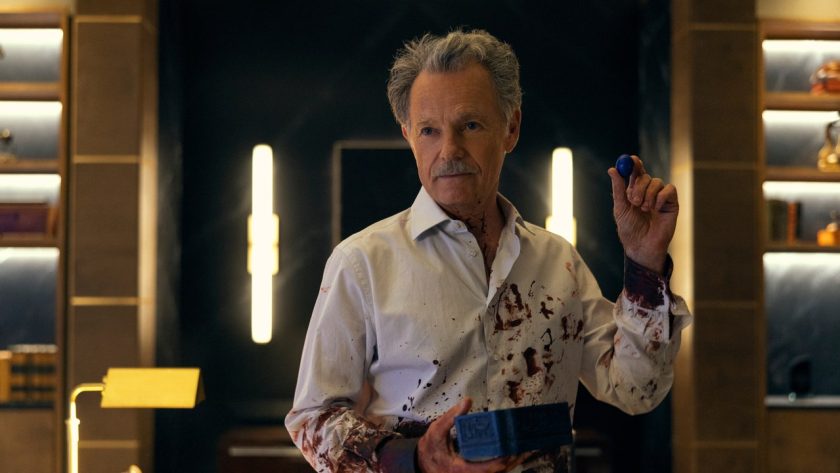Sometimes it feels like it’s not Halloween season unless there’s a new Mike Flanagan show on Netflix. The Fall of the House of Usher director has built up a varied and impressive body of work over the years, starting with terrifying films like Absentia, Oculus, and Hush before finding his stride with a series of gothic Netflix shows. He launched his anthology series The Haunting with The Haunting of Hill House and its follow-up The Haunting of Bly Manor, took a break between miniseries to direct the feature Doctor Sleep— an almost shockingly great sequel to The Shining— and came back to streaming TV strong with the vampiric masterpiece Midnight Mass and the eerie Christopher Priest adaptation The Midnight Club. The man works hard—and his latest project, a miniseries adaptation of one of Edgar Allan Poe’s most famous and haunting stories, is his most major work yet.
In Poe’s 1839 short story, an unnamed narrator is summoned to the house of the elderly Roderick Usher, who tells the narrator that he believes the house he lives in to be alive, and that their fates are intertwined. After the narrator helps Roderick entomb his recently dead twin sister, Madeline, a storm blows in, wind and rain shrieking against the house’s dilapidated walls. The narrator realizes that some of the noise is coming from inside the house, right before Madeline bursts through the door—she was still alive when Roderick had attempted to bury her. The two Ushers die and the narrator narrowly escapes before the entire house falls to the ground.
How would you expand this (a plenty creepy but brief tale) to fill an entire season of television? First, Flanagan modernizes it: In this version the Ushers are the dynasty behind a multibillion-dollar pharmaceutical company, which peddled powerful and addictive opioids to the masses in the name of eradicating pain altogether. Roderick (Bruce Greenwood in the present, Zach Gilford in flashbacks) is the patriarch of a grand family of legitimate and illegitimate children all vying for control of Fortunato Pharmaceuticals, with his twin, Madeline (Mary McDonnell in the present, Willa Fitzgerald in flashbacks), acting as his ruthless second-in-command. Having grown up corrupted by extreme wealth, each of the children have their own sordid vices that swiftly prove to be their downfall, as they all start dying under mysterious circumstances. The family seems haunted by a mysterious woman (Carla Gugino) who may be connected to all of the children’s grisly deaths.
The cast draws from Flanagan’s ever-growing Rolodex of regulars, from Kate Siegel and Henry Thomas, who have been in almost everything Flanagan has done, to Rahul Kohli and T’Nia Miller of Bly Manor, and Samantha Sloyan of Hush and Midnight Mass. Most of the young main cast of The Midnight Club show up in small roles, including the fantastic Ruth Codd as Roderick’s painkiller-addicted second wife, Juno Usher. Mark Hamill makes his Flanagan debut as Arthur Pym, the Ushers’ gravelly voiced fixer, who’s always first on the scene of any crime, ready with a cover story.
As the young Ushers are picked off, their demises follow the paths of other Poe stories: One of the characters is menaced by a spectral black cat; another goes down during a grand party at the hands of a cloaked figure spreading death; another is driven insane by a noise only she can hear, which mimics the thumping of the company’s failed mechanical-heart-transplant experiment. Easter eggs for the true hardcore fans of the PCU (Poe Cinematic Universe).



